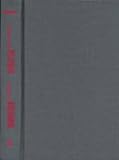The Criticism of Didactic Poetry : Essays on Lucretius, Virgil, and Ovid / Alexander Dalzell.
Material type: TextSeries: Robson Classical LecturesPublisher: Toronto : University of Toronto Press, [1996]Copyright date: ©1996Description: 1 online resource (240 p.)Content type:
TextSeries: Robson Classical LecturesPublisher: Toronto : University of Toronto Press, [1996]Copyright date: ©1996Description: 1 online resource (240 p.)Content type: - 9780802008220
- 9781442673601
- 871/.0109 22
- PA6055 .D34 1996eb
- online - DeGruyter
| Item type | Current library | Call number | URL | Status | Notes | Barcode | |
|---|---|---|---|---|---|---|---|
 eBook
eBook
|
Biblioteca "Angelicum" Pont. Univ. S.Tommaso d'Aquino Nuvola online | online - DeGruyter (Browse shelf(Opens below)) | Online access | Not for loan (Accesso limitato) | Accesso per gli utenti autorizzati / Access for authorized users | (dgr)9781442673601 |
Browsing Biblioteca "Angelicum" Pont. Univ. S.Tommaso d'Aquino shelves, Shelving location: Nuvola online Close shelf browser (Hides shelf browser)

|

|

|

|

|

|

|
||
| online - DeGruyter Creating States : Studies in the Performative Language of John Milton and William Blake / | online - DeGruyter Creative Entanglements : Gadda and the Baroque / | online - DeGruyter Creditor Rights and the Public Interest : Restructuring Insolvent Corporations / | online - DeGruyter The Criticism of Didactic Poetry : Essays on Lucretius, Virgil, and Ovid / | online - DeGruyter Cross Culture and Faith : The Life and Work of James Mellon Menzies / | online - DeGruyter Cross-Cultural Encounters on the Ukrainian Steppe : Settling the Molochna Basin, 1784-1861 / | online - DeGruyter Crossword Italian! : Have Fun Learning Italian by Solving Crossword Puzzles / |
restricted access online access with authorization star
http://purl.org/coar/access_right/c_16ec
Shelley thought all didactic poetry an 'abhorrence,' and most of the Romantics agreed with this judgment. Critics in this century have been less dismissive of the genre, but seem puzzled by it. There has been a tendency to treat a didactic poem as though it were a kind of lyric, in which the focus of interest lies in the emotions and feelings of the writer. But didactic poetry has a purpose, history, and character of its own. This original and important book asks the question, 'What can the practising critic usefully say about a didactic poem?' This is not primarily a book about theory, but a guide to practical criticism combined with a fresh reading of the chosen texts. Through a close analysis of three of the major didactic poems in the classical canon, the De rerum natura of Lucretius, the Georgics of Virgil, and the Ars amatoria of Ovid, Dalzell's aim is to consider these poems as a genre and to ascertain what tools are available to the critic for their understanding. He raises questions about the limits of genre criticism, the relationship of poetry and knowledge, reader-response, and historical reception. Can there be a poetry of statement? Is all genuine poetry necessarily fictive in some sense? To what extent is a serious didactic intent compatible with poetry?The Criticism of Didactic Poetry is primarily of interest to classicists. It will also be of great value to scholars of other literatures who are interested in the history of the genre or in the theoretical debate about whether poetry can encompass knowledge. This book is a significant original contribution to the field, with the potential to influence future scholarly thinking on didactic poetry.
Mode of access: Internet via World Wide Web.
In English.
Description based on online resource; title from PDF title page (publisher's Web site, viewed 01. Nov 2023)


